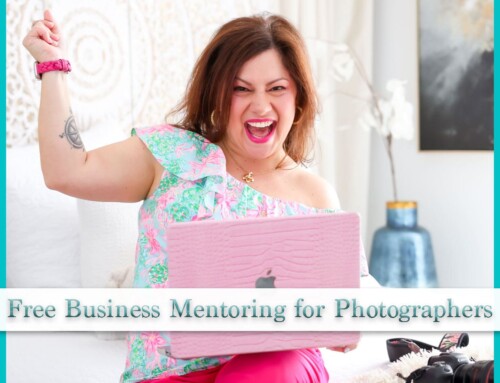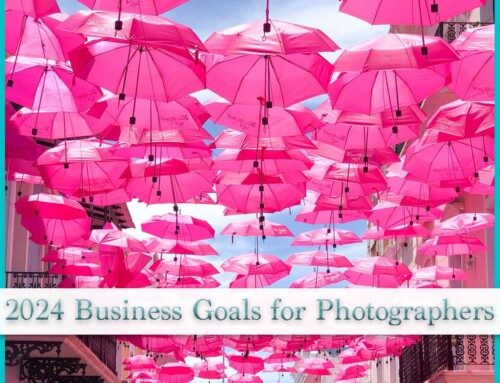
If you are trying to decide when to take the plunge and take your photography to the next level, it can feel very over whelming. Becoming a “professional” photographer doesn’t just mean that you have the latest and greatest camera on the market (and trust me, there will always be a newer, more awesome model available!) or that you have your business page set up on Facebook.
It means that you have all your (proverbial) ducks in a row: like a business license, tax payment schedule (both federal and state), an ironclad contract, separate business bank account, insurance, backup gear (just in case!)… and the list goes on!!!
Not quite ready to make the commitment?
Here are some tips to help you grow in your photographic journey if you are not quite ready to take the plunge and become a full fledged, legal business:
1) Know Your Equipment
Something that (unfortunately) many overlook. As someone one their way to becoming a professional, you should be well versed in all of your cameras settings: lenses, camera settings, lighting, etc. Getting a good image is about skill and expertise, not about a roll of the dice. Make sure you know your stuff before starting to charge for your services.
2) Talk to Established Photographers
Photographers who have been working as an independent business can be a wealth of information! The might be willing to give advice if you are just starting out and can tell you the pitfalls and upsides right from the start. However, don’t just assume that if you ask, you’ll receive the information, or receive it for free.
Most photographers pour a good amount of money into education and continuing their education. And as someone who has been in the business for 4+ years, I often run into the problem that only have so much time in the day. I am simply not able to answer every new photographer inquiry that comes into my inbox. That’s not to say that I don’t want to help (because helping photographers is definitely one of my passions!), I just can’t devote as much time to it as I would like.
3) Seek Classes or Mentoring Sessions
This is a great parlay from the previous topic because there are a lot of local resources available to you. Here in Virginia Beach, the Museum of Contemporary Art (MOCA) holds lots of photography classes where yours truly can help you learn the in’s and out’s of your camera, and I also offer One-On-One sessions to help you explore all the functions of your camera and master Manual mode!, as well as basic business advice.
4) Investing in Gear
Do you need a good camera? Yes.
Do you need a better lens? Absolutely!!!
Remember earlier that we talked about the fact that there will always be a newer camera coming out? I definitely recommend buying the best camera you are able to. But if it comes down to it, and you’re trying to decide whether to buy a new camera or a new lens, I’ll tell you to upgrade your lens. Hands down, every time!!!
Investing in good glass is one of the best investments you can make!
5) Read Up!
Lighting and composition can either make or break a photograph, and with the wealth of knowledge available at your fingertips (via bookstores and the web), there is no excuse to not have a good handle on basic photography concepts. If you’re looking for a place to start, I recommend the book Understanding Exposure by Bryan Peterson. This goes over a lot of the fundamentals of photography and is one of the textbooks I use when teaching at MOCA.
6) Practice, Practice, and Practice Some More!
Get out there and take pictures!!!
It sounds like such a no-brainer, but you’ll never get better if you don’t practice! Take pictures all the time, of all different things. Keep your camera handy, and at your finger tips, so there is no excuse for not grabbing it and snapping away!
7) Have Someone Else Evaluate Your Photos
Ask others to critique your work. As photographers, we are very attached to our art and the photos we create, so it can be helpful to have an outside party look over your work and give a critique as to what could be done to help you improve your images. Remember that if you open an image to critique, you need to be ready to hear what they have to say.
It is very easy to become defensive of our work and not want to listen to what others may say about the image, but know that this person is trying to help you generate better photos!
8) Have A Business Plan
Take the time to answer critical questions: Who is your target client? How will you market yourself and your business to your target client? What is your pricing strategy? What products will you sell? How will you differentiate your business from others in your area?
Make sure to do this before you start your business because it will be harder to shift business strategies later.
This blog post is by no means meant to dissuade you from pursuing a job as a photographer, but rather, to make you reflect and realize that there is SO MUCH that needs to be done prior to getting business cards made and hanging out the “Open” sign.
I’ll leave you with a quote from Mary Louise Cook:
“If you love it and know that it is what you want to do, keep moving, keep exploring trends and be creative. There are always set backs and disappointments, but those who reach their goals are those who never gave up.”














Leave A Comment